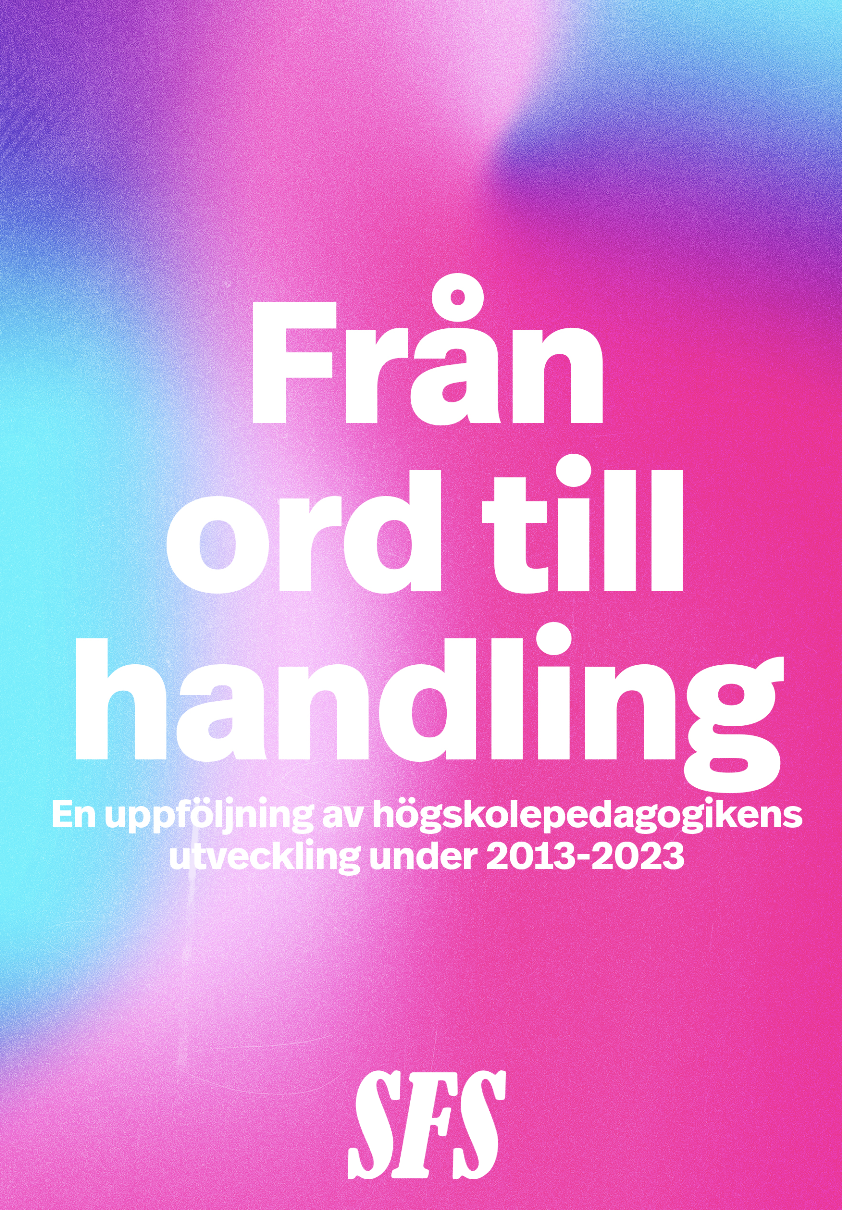It has been ten years since the launch of the SFS report "Student's learning in the center - Swedish National Union of Students on pedagogy in the university" - what has happened?
Read the report here:
This report is a follow-up to the Swedish National Union of Students, SFS, previous report The student's learning at the center - Swedish National Union of Students on pedagogy in the university or the "pink report", as it is also commonly called due to its graphic design, from 2013. The report is a cornerstone of SFS's political work with educational quality and has had a great impact both internally and externally. In the report, SFS strongly highlighted that student-centred learning is the pedagogy that students want to see in higher education, which in turn has had major consequences for SFS policy development in the following years.
How has the development of higher education pedagogy fared between the years 2013-2023 given SFS' demands and calls? The results from follow-up can be summarized in a few observations.
After the follow-up of the development of higher education pedagogy within the framework of the requirements that SFS placed on the government, the following can be noted:
- The government's involvement in matters relating to higher education pedagogy is very limited. The follow-up has only found evidence that two of nine requirements set by SFS in 2013 have been met.
- At a strategic level, the government is conspicuous by its absence. There is a lack of national strategies, investment in higher education pedagogical research, assignments to authorities and there have been no initiatives to create sharper regulations on requirements for teachers' pedagogical skills. On the other hand, the government has on one occasion invested in higher education pedagogical development through the government mission Higher education pedagogic lift, but that mission will not continue after 2023.
- The government has remedied the Discrimination Act's requirements for accessibility in the university.
- During the period, the government has made certain investments to strengthen the quality of higher education. However, the follow-up can state that the erosion of higher education has continued during 2013-2023.
With regard to the calls that SFS made to the higher education institutions, the follow-up has identified the following developments:
- Despite limited material, the follow-up has found indications that student-centered learning is a well-established principle in the higher education sector and in the activities of higher education institutions.
- A number of higher education institutions do not follow SUHF's recommendations that all employed teachers must undergo at least ten weeks of training in higher education pedagogy.
- The follow-up has not been able to locate that the teachers have earmarked time within the framework of their position for pedagogical research and development.
- The educational institutes have come on the right track with regard to several issues in the assessment of pedagogical skills. This applies above all to pedagogical qualification systems, the use of pedagogical portfolios, definition of pedagogical skill and the presence of pedagogical experts when teachers' pedagogical skill is to be assessed.
